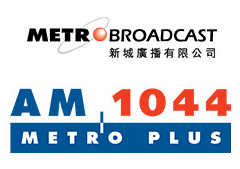President Joe Biden’s administration plans to press the
Netherlands next week to stop its top chipmaking equipment maker
ASML from servicing some tools in China, two people familiar
with the matter said, as the U.S. leans on allies in its bid to
hobble Beijing’s tech sector.
Alan Estevez, the U.S. export policy chief, is scheduled to
meet in the Netherlands next Monday with officials from the
Dutch government and ASML Holding NV to discuss the
servicing contracts, the people said.
Washington may also be seeking to add to a list of Chinese
chipmaking factories restricted from receiving Dutch equipment
as part of the discussions, one of the people said.
The Dutch Foreign Ministry confirmed the upcoming meeting
but did not elaborate on which topics would be on the agenda.
“The Netherlands always has good discussions with our
partners. The meeting of officials on Monday is one example of
that,” the Ministry told Reuters.
The Chinese Embassy in Washington said Beijing opposes the
U.S.’s “overstretching” of the concept of national security and
use of “pretexts to coerce other countries into joining its
technological blockade against China.”
The Commerce Department and ASML, whose shares briefly
fell after the news, declined to comment.
The meeting is Washington’s latest move to convince allies
to join U.S. efforts to further crack down on Beijing’s ability
to produce cutting-edge chips.
Last year, sanctioned Chinese telecoms giant Huawei
shocked the world with a new phone powered by a sophisticated
chip. The Huawei Mate 60 Pro was seen as a symbol of the China’s
technological resurgence despite Washington’s ongoing efforts to
cripple its capacity to produce advanced semiconductors.
Chip-related exports to China are vital for its economy.
Chinese President Xi Jinping complained to Biden this week about
U.S. efforts to block certain U.S. technologies, including
advanced semiconductors, saying it hindered China’s development.
Restrictions on servicing ASML machines could be
particularly painful given the large and expensive tools require
constant maintenance. China was ASML’s second-largest market by
sales last year (29%), after Taiwan.
Last year, Japan and the Netherlands joined a U.S. effort to
keep certain chipmaking technology from China for national
security reasons. The Dutch government began restricting certain
deep ultraviolet (DUV) equipment for Chinese customers and
partially revoked one license, impacting a small number of
customers in China, according to ASML.
But the Dutch restrictions did not go as far as U.S.
rules, which barred American firms from servicing equipment at
advanced Chinese factories. Estevez has
said publicly
that the U.S. is asking allies to stop local companies from
servicing certain chipmaking tools for Chinese customers.
“We are working with our allies to determine what is
important to service and what is not important to service,”
Estevez
said at an export control conference
last week.
In October, the U.S. issued a regulation
to keep more ASML DUV machines
from certain Chinese chip factories because American parts
in those tools gave Washington the power to regulate their
export from overseas. Officials may broach expanding the list of
Chinese factories at the Monday meeting, one of the sources
said.
Last week, Dutch Prime Minister Mark Rutte met with
Chinese President Xi Jinping at a
summit in Beijing
. Xi warned against setting up trade barriers.
Rutte said Dutch restrictions aim to disrupt business as
little as possible.
However, Rutte said China’s support for Russia, which
the Netherlands views as its top national security threat, is a
major impediment to relations – a signal that exports of goods
with potential military uses to China will be scrutinized. Rutte
is a top candidate to become NATO’s next secretary general.
Targeting China’s tech sector
Categories:
